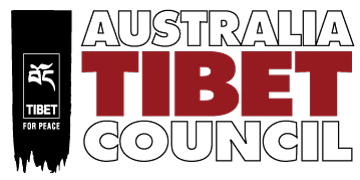Magnitsky: Campaign update
For too long Chinese authorities have gotten away with committing unthinkable abuses against Tibetans, from torturing political prisoners to defrocking devout Buddhist monks and nuns and destroying the monasteries they called home.
That’s why we have been campaigning for a Magnitsky-style act that would allow the worst human rights abusers to be punished for their crimes when it comes to measures within Australia’s capability. It’s time we sanctioned Chinese leaders like Chen Quanguo, the architect behind oppressive surveillance and securitisation systems in Tibet and East Turkestan.
Already the UK, EU and Canada, under their Magnistky laws, have put travel bans and asset freezes in place against four Chinese officials implicated in persecution against Uyghurs. Thanks to your support and actions there are some important improvements now proposed for Australia’s existing sanctions regime. However, the response falls short of our expectations. The government has offered some alternatives in some areas, but these remain below the gold standard set by our allies.
- The government has not agreed to standalone Magnitsky style human rights and corruption legislation, as adopted by most of Australia’s allies. Instead, the government wants to amend Australia’s existing Autonomous Sanctions Act (2011) which is designed to place sanctions using thematic areas based on countries rather than targeting individuals. This would dilute the message to would-be perpetrators that they will face serious consequences for their actions.
- While human rights violations and corruption are both thematic areas under the amendments, they will be limited. Human rights criteria will be focused on three rights – right to life, right to be free from slavery, right to not be subject to torture or cruel, inhuman, or degrading treatment or punishment. This will restrict the ability to impose sanctions on the perpetrators of serious human rights abuses falling outside of this narrow focus.
Importantly the government’s response contains no reference to violations of international humanitarian law as being sanctionable under its proposed changes to the already flawed Autonomous Sanctions Act. Some human rights abuses occurring in Tibet, such as the right to religious freedom, may not be sanctionable without these references. - Also important among the short fallings is the rejection of an external independent advisory body which would provide advice to the Foreign Minister, scrutinise the process, allow for easy access for nominations for sanctions, provide transparency, and ensure the process was free of political considerations. The final decision on sanctions would still have rested with the minister under this proposal.
In some good news the government confirmed that sanctions would take the same form as the Magnitsky report recommendations of restrictions to visa/travel, access to assets, and access to the Australian financial system. It also confirmed that the sanctions would be applicable to family and direct beneficiaries of those sanctioned under the regime. It also confirmed that its proposed amendments would be broad in its capture of people, entities, corporations, state, and non-state actors.
We will need to work together in the period from now until legislation is introduced to parliament for improvements to the government’s proposals. We want a workable, transparent sanctions regime that engages with the public and civil society.
Once a new sanctions regime is in place, which the government promises will be before the end of the year, our campaign will need to change to focus on getting the government to include the perpetrators of human rights abuses against Tibetans on the new sanctions listing. That’s for 2022.
We’ll keep you updated as the campaign develops so that we can keep working together to shine light in dark places.
